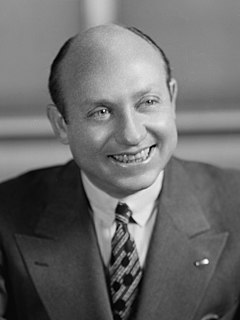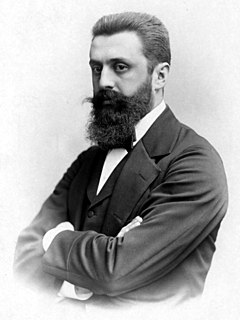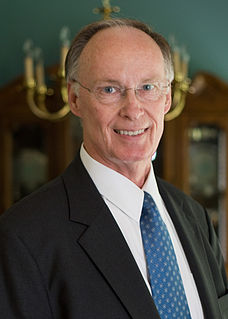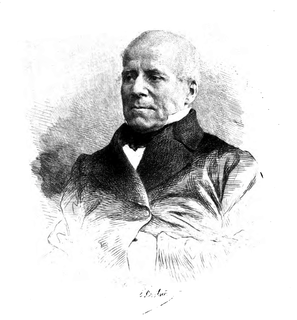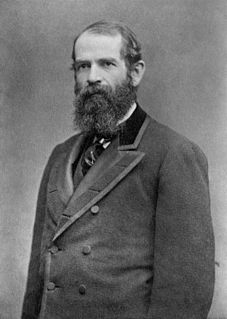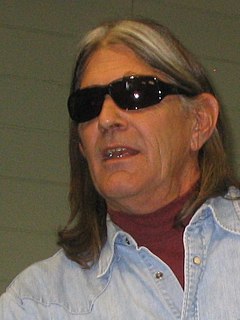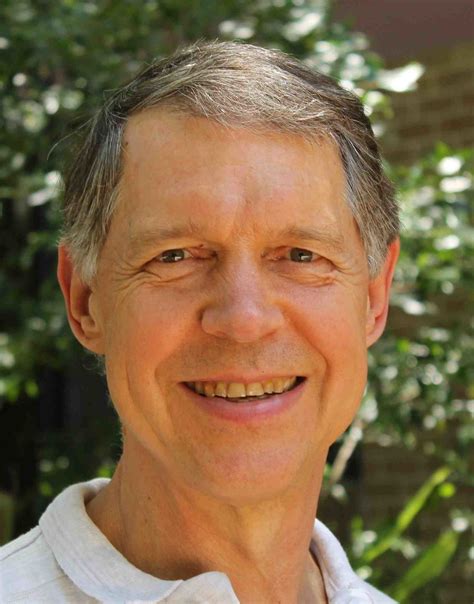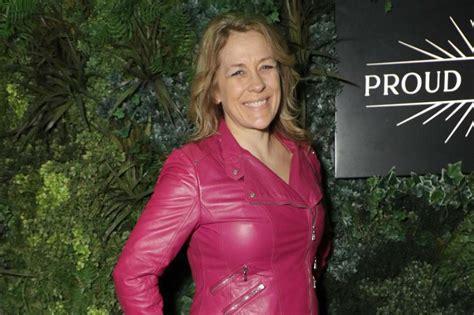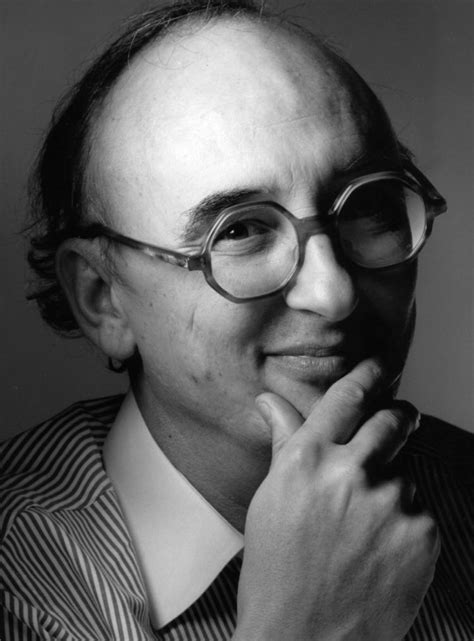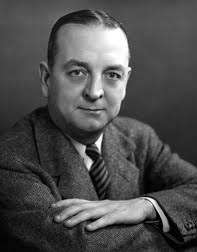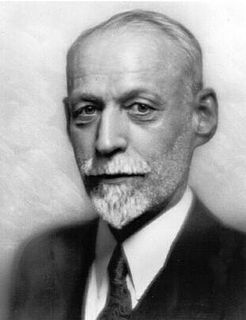Top 1200 Property Ownership Quotes & Sayings - Page 5
Explore popular Property Ownership quotes.
Last updated on April 21, 2025.
I typically don't use the distinction 'positive' and 'negative' liberty, because negative sounds bad and positive sounds good, and I don't think that the terminology ought to prejudice us one way or the other. So I think the more descriptive term is 'liberty rights' versus 'welfare rights'. So, liberty rights are freedom-of-action type rights, and welfare rights are rights-to-stuff, of various kinds...And, property rights are not rights-to-stuff. I think that's one of the key misunderstandings about property. Property rights are the rights to liberty within your jurisdiction.
One of the proven ways of getting workers more involved with their jobs is by dovetailing employee profit-sharing and stock ownership plans with greater responsibility sharing... Trade unions in this country should... consider these arrangements much more carefully than they have up to now... Expanded employee profit participation and stock ownership would provide workers with a greater measure of economic and social independence, thus stimulating increased productivity.
We must expropriate gently the private property on the state assigned to us. We shall try to spirit the penniless population across the border by procuring employment for it in the transit countries, while denying it employment in our country. The property owners will come over to our side. Both the process of expropriation and the removal of the poor must be carried out discretely and circumspectly. Let the owners of the immoveable property believe that they are cheating us, selling us things for more than they are worth. But we are not going to sell them anything back.
Pollution and overuse of resources stem directly from the failure of government to defend private property. If property rights were to be defended adequately, we would find that here, as in other areas of our economy and society, private enterprise and modern technology would come not as a curse to mankind but as its salvation.
The total dividend income declared in 1995 by the bottom 9.7 million Canadian tax-filers (47% of all those submitting tax returns) was $310 million. The estimated dividend income received by the Thomson family in 1995 from its 72% ownership share of the Thomson Corporation and its 22% ownership share of the Hudson's Bay Company was $310 million.
If every person has the right to defend - even by force - his person, his liberty, and his property, then it follows that a group of men have the right to organize and support a common force to protect these rights constantly. Thus, since an individual cannot lawfully use force against the person, liberty, or property of another individual, then the common force - for the same reason - cannot lawfully be used to destroy the person, liberty, or property of individuals or groups.
I judge property myself by its net earning power; that is the only rule I have been able to get.... This whole island [Manhattan] was once bought for a few strings of beads. But now you will find this property valued by its earning power, by its rent power, and that is the way to value a railroad or telegraph.
..every Man has a Property in his own Person. This no Body has any Right to but himself. The Labour of his Body, and the Work of his Hands, we may say, are properly his. .... The great and chief end therefore, of Mens uniting into Commonwealths, and putting themselves under Government, is the Preservation of their Property.
One hundred and fifty years ago the vacant lands of the West were opened to private use. One hundred years ago the Congress passed the Homestead Act, probably the single greatest stimulus to national development ever enacted. Under the impetus of that Act and other laws, more than 1.1 billion acres of the original public main have been transferred to private and non-federal public ownership. The 768 million acres remaining in federal ownership are a valuable national asset.
None of the individual metal hunks of an airplane have the property of ?ight, but when they are attached together in the right way, the result takes to the air. A thin metal bar won't do you much good if you're trying to control a jaguar, but several of them in parallel have the property of containment. The concept of emergent properties means that something new can be introduced that is not inherent in any of the parts.
I hear Republicans and Libertarians and so forth talking about property rights, but they stop talking about property rights as soon as the subject of American Indians comes up, because they know fully well, perhaps not in a fully articulated, conscious form, but they know fully well that the basis for the very system of endeavor and enterprise and profitability to which they are committed and devoted accrues on the basis of theft of the resources of someone else. They are in possession of stolen property. They know it. They all know it. It's a dishonest endeavor from day one.
The last point for consideration is the supposed disposition of the people to interfere with the rights of property. So essential does it appear to me, to the cause of good government, that the rights of property should be held sacred, that I would agree to deprive those of the elective franchise against whom it could justly be alleged that they considered it their interest to invade them.
Private property works like circuitry in electronics, or piping in hydraulics. It conveys wages to the owners of labor power, as well as the various forms of nonwage property income to the owners of capital. In itself, it is no more responsible for maldistribution of purchasing power than the science of bookkeeping is responsible for bankruptcy.
Imagine that you had discovered gold or oil on a certain property, and no one else knew about it. Can you see yourself being sad and feeling deprived for having to gather all your resources and sacrifice them in order to buy that property? Hardly. Now you know what it is like to deny yourself, take up your cross, and follow Jesus.
The syndicates take the strip and sell it to newspapers and split the income with the cartoonists. Syndicates are essentially agents. Now, can you imagine a novelist giving his literary agent the ownership of his characters and all reprint, television, and movie rights before the agent takes the manuscript to a publisher? Obviously, an author would have to be a raving lunatic to agree to such a deal, but virtually every cartoonist does exactly that when a syndicate demands ownership before agreeing to sell the strip to newspapers.
[A] republic . . . [is] a government, in which the property of the public, or people, and of every one of them was secure and protected by law . . . implies liberty; because property cannot be secured unless the man be at liberty to acquire, use or part with it, at his discretion, and unless he have his personal liberty of life and limb, motion and rest, for that purpose.
Countries were told they had no incentives because of social ownership. The solution was privatization and profit, profit, profit. Privatization would replace inefficient state ownership, and the profit system plus the huge defense cutbacks would let them take existing resources and an increase in consumption. Worries about distribution and competition or even concerns about democratic processes being undermined by excessive concentration of wealth could be addressed later.
I've begun to realize, as I'm getting older, that I was taught to go for a certain kind of stillness to get things done. I missed that in my life. I loved my grandmother's property, out in South Georgia right above the Florida line, so I just thought I'd find some property where I could feel that again.
Men have looked away from themselves and at things so long that they have come to esteem the religious, learned and civil institutions as guards of property, and they deprecate assaults on these, because they feel them to be assaults on property. They measure their esteem of each other by what each has, and not by what each is.
The alternative to intellectual property is straightforward: intellectual products should not be owned, as in the case of everyday language. That means not owned by individuals, corporations, governments, or the community as common property. It means that ideas are available to be used by anyone who wants to.
Their property held them in chains...chains which shackled their courage and choked their faith and hampered their judgment and throttled their soul...If they stored up their treasure in heaven, they would not now have an enemy and a thief within their own household...They think of themselves as owners, whereas it is they rather who are owned: enslaved as they are to their own property, they are not the masters of their money but its slaves.
The churches rose to power on the income from tax-free property. What earthly -or heavenly- right have they got to enjoy a privilege denied to everyone else, even including nonprofit organizations? None! My contention is that with the churches exempted from property taxation, you and I have to pay that much more in taxes to make up for what they're not contributing.
I am much nearer to creating one nation than Labour will ever be. Socialism is two nations. The privileged rulers, and everyone else. And it always gets to that. What I am desperately trying to do is create one nation with everyone being a man of property, or having the opportunity to be a man of property.
If we had created rules to automatically turn up the required down payment on a home when there's a housing bubble, or just say that the mortgage on a property cannot be larger than the value of the property three years ago, the amount of human misery that would've been avoided would've been enormous.
I understood when I was just a child that without water, everything dies. I didn't understand until much later that no one "owns" water. It might rise on your property, but it just passes through. You can use it, and abuse it, but it is not yours to own. It is part of the global commons, not "property" but part of our life support system.
The right of individual property is no doubt the very corner-stone of civilization, as hitherto understood; but I am a little impatient of being told that property is entitled to exceptional consideration because it bears all the burdens of the state. It bears those, indeed, which can be most easily borne, but poverty pays with its person the chief expenses of war, pestilence, and famine.
I'd make an educated guess that 20 to 25 percent of the taxable property in the U.S. is Church-owned.In a recent book, Church Wealth and Business Income, it was estimated that this property -all of it tax-exempt -is worth upwards of 80 billion dollars. I know that's a fantastic, unbelievable figure, but there's every reason to believe that it's on the conservative side; and this amount is increasing yearly at a geometric rate.
Private property in the instruments of production is an institutional device both for dispersing power and for securing effective organization of production. The only simple property system is that of a slave society with a single slave owner - which, significantly, is the limiting case of despotism and of monopoly. Departure from such a system is a fair measure of human progress.
When incentive to acquire and obtain property is gone, people no longer make efforts to acquire any... Those who infringe upon property rights commit an injustice... If this occurs repeatedly, all incentives to cultural enterprise are destroyed and they cease utterly to make an effort. This leads to destruction and ruin of civilization.
I submit that the Government exists to provide for the needs of the people, and when it comes to choice between profits and property rights on the one hand and human welfare on the other, there should be no hesitation whatsoever in saying that we are going to place the human welfare consideration first and let property rights and financial interests fare as best they may.
For a man's property is not at all secure, though there be good and equitable laws to set the bounds of it, between him and his fellow subjects, if he who commands those subjects, have power to take from any private man, what part he pleases of his property, and use and dispose of it as he thinks good.
What our generation has forgotten is that the system of private property is the most important guarantee of freedom, not only for those who own property, but scarcely less for those who do not. It is only because the control of the means of production is divided among many people acting independently that nobody has complete power over us, that we as individuals can decide what to do with ourselves.
I said that one of the causes, and the one that has created more excitement and dissatisfaction than any other, is, that the Government will not hereafter, and when it is necessary, interpose to protect slaves as property in the Territories; and I asked the Senator if he would abandon his squatter-sovereignty notions and agree to protect slaves as all other property?
My concern over private property is that it no longer fosters individuality. The historic destiny of private property is that it has created a highly corporatized economy, and I have to ask myself why. What is it in the market that led 100 capitalists to dissolve into 10 as a result of rivalry and accumulation, 10 into 3, and I think if the system has its way, those 3 into 1?
Many foreign property owners work in the City of London and are encouraged to bring their expertise and earning power to this country because of the favourable capital tax environment. Attacking their property profit may encourage some to leave, but it would certainly deter others from coming in the first place.
Once again, we are reminded that awakening, or enlightenment is not the property of Buddhism, any more than Truth is the property of Christianity. Neither the Buddha nor the Christ belongs exclusively to the communities that were founded in their names. They belong to all people of goodwill, all who are attentive to the secret which lives in the depths of their breath and their consciousness.
If men are discharged of reverence for ancient usage, they will treat this world, almost certainly, as if it were their private property, to be consumed for their sensual gratification; and thus they will destroy in their lust for enjoyment the property of future generations, of their own contemporaries, and indeed their very own capital.

